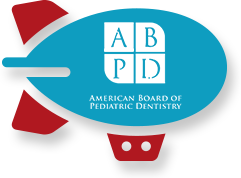The animal kingdom is a fascinating place full of wonder and mystique! From caterpillars reforming their bodies within cocoons, to monkeys that dive for fish, animals are truly fantastic creatures. As interesting as animals are, their teeth are even more intriguing. Below are some of our favorite facts about animal teeth!
1 - Sharks lose A LOT of teeth. Sharks’ teeth are positioned in rows within their mouths, and as the rows move forward, new teeth push older ones out. They usually lose at least one tooth per week! At that rate, a human would be toothless in 32 weeks!

2 - Elephant tusks are actually a set of teeth that never stop growing! Some think that they are elongated canine teeth, but they’re actually extra long incisors.
3 - Giraffes and humans have the same amount of teeth – 32. However, giraffes have no upper front teeth, and most of their teeth are actually molars in the back of their mouths.

4 - Frogs have teeth, but toads do not. However, both amphibians swallow their food whole!
5 - Rabbits, squirrels and rodents have teeth that never stop growing, which is why they chew on tough foods like nuts, leaves and bark. It helps wear down their teeth and keep them from growing too long.

6 - Mosquitos actually have 47 teeth! They are so small that they cannot be seen without magnification.
7 - A lot of herbivorous animals like cows and sheep don’t have incisors. These animals use their lips to cut their food, and then process it normally.
8 - A horse’s teeth are massive and weigh more than its brain.

9 - Snails have over 25,000 microscopic teeth on their tongues!
10 - You can uncover a dolphin’s age by counting the rings in its teeth, much like you can determine the age of a tree!

Take Care of Your Teeth
Most animals take care of their teeth in some way or another, just like us! If your little critter is in need of a pediatric dentist, then visit our office. Our office is designed specifically to care for children, and address dental issues common in children. We will thoroughly evaluate your child’s smile and provide a treatment plan that improves their overall oral health.

